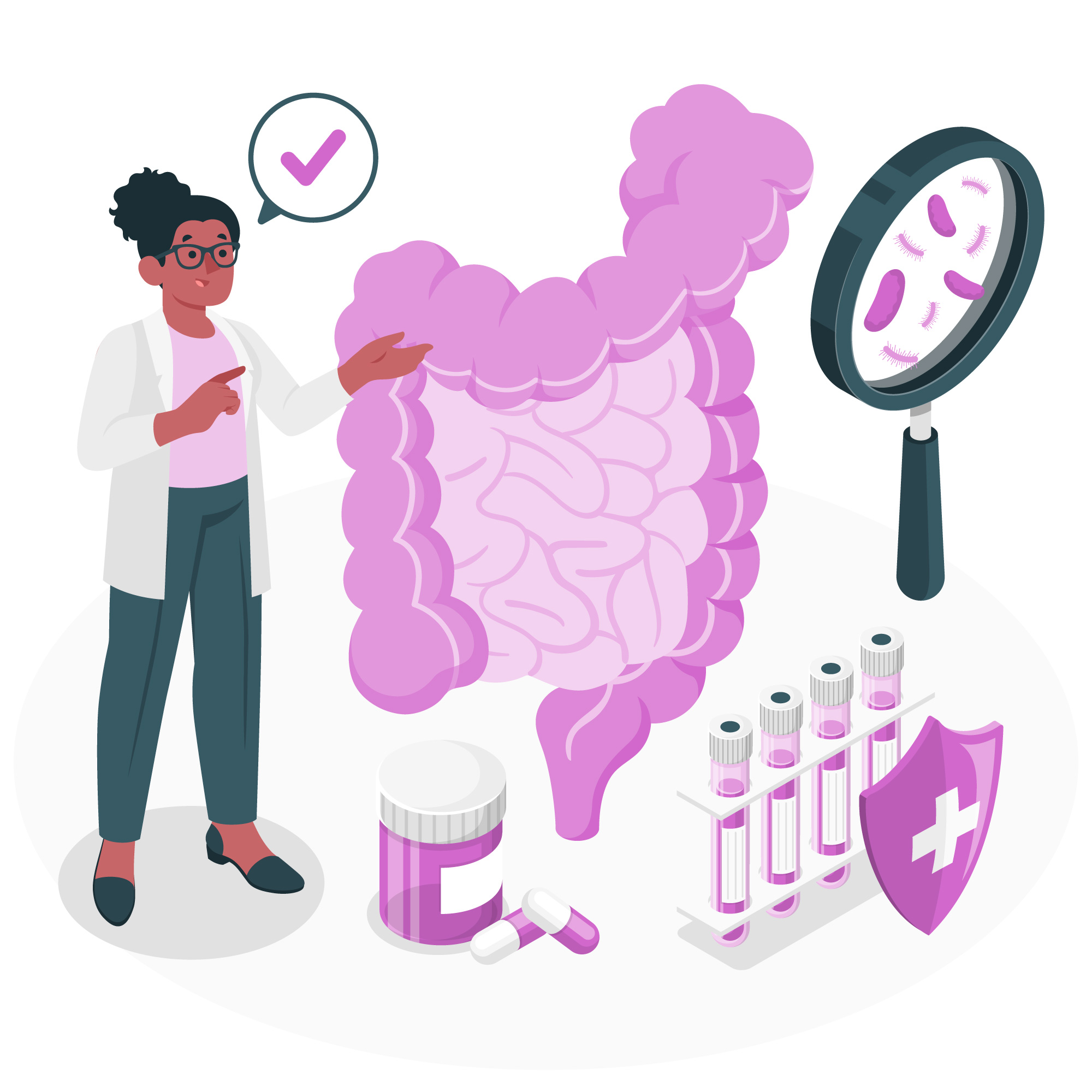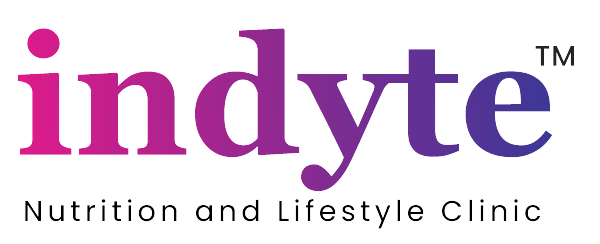Bloating
Consult Best Bloating Nutritionist From Indyte
Do you also feel fuller and something uncomfortable in your stomach? It’s because of bloating.
On average, 20% of people experience bloating once a week, and it’s more common in women than men. But this doesn’t mean it’s fun; something fishy with your health.
Bloating is usually caused by two main things: gas or water retention. Plus, there are many reasons, such as eating too quickly, food intolerances, overeating, stress or anxiety, constipation, consuming foods that produce excess gases or slow digestion, and GI disorders like irritable bowel syndrome, inflammatory bowel disease, or gastroparesis.
And yes, there is always a solution when you schedule a call with a bloating nutritionist.
So Why Wait? Book An Appointment Now!

What Does A Bloating Nutritionist Do To Help You?
Our Bloating Nutritionists, with their specialization and incredible practice, can help you come to the best conclusion about your bloating problems. Here are some ways how they can help you:
- Find What Foods You're Intolerant To: These health guides will remove the food or food groups creating issues. Thus, identifying the true reasons behind bloating.
- Understand Your Digestive Health: Then, they will study your gut health. They'll check things like enzyme creation, gut bacteria levels, and bowel movements. These might be causing your bloating.
- Bloating Diet Plan Preparation: Nutritionists specializing in bloating devise a special diet plan. This plan aids digestion, based on their research and study.
- Suggestion for Supplements: They may suggest supplements like pre and probiotics. These helps cut down bloating and enhance digestion.
- Proper Education: Trained nutritionists guide clients. They teach about correct food selection, food processing, appropriate serving sizes, and healthy food habits.
- Tackling Root Causes: Correct, they'll keep no secrets with you. They share all the details about conditions like irritable bowel syndrome (IBS), small bacterial overgrowth (SIBO), or gastroparesis.
- Handle Stress: More than just a diet plan for bloating, they also provide guidance for bloating issues, like stress, is provided. They introduce helpful stress control techniques.
Trust On Diet Plan For Bloating With Indyte Experts!
We recommend supplements, educate clients on proper eating habits, address underlying conditions like IBS, and provide stress management techniques.
Our holistic approach limits gas-producing foods, gradually increases fiber intake and reduces sodium and dairy products.

Trust Indyte's experts to design an effective diet plan that alleviates bloating discomfort and promotes overall well-being.

Consultation
We provide highest level of satisfaction care and services to our client
1. How can I prevent bloating through my diet?
To prevent bloating, consider the following tips in your diet plan for bloating:
- Eat smaller, more frequent meals instead of large ones.
- Avoid gas-producing foods like beans, cabbage, and carbonated beverages.
- Eat slowly and chew your food thoroughly to reduce swallowed air.
- Incorporate probiotic-rich foods like yogurt or kefir to support gut health.
Healthy fats from sources like avocados, nuts, seeds, and olive oil can reduce inflammation. Including foods with a low glycemic index can also help maintain stable blood sugar levels.
2. Are there specific foods that can help reduce bloating?
Yes, certain foods can help alleviate bloating:
- Ginger: Known for its digestive properties, it can help reduce gas and bloating.
- Peppermint: Peppermint tea or supplements can soothe the digestive tract.
- Fennel: Fennel seeds or tea can help relax digestive muscles and reduce gas.
- Papaya: Contains enzymes that aid digestion and reduce bloating.
- Asparagus: Acts as a natural diuretic, helping to reduce water retention and bloating.
Indyte will determine the best dietary approach for your specific needs.
3. Can lifestyle changes help reduce bloating?
Absolutely. In addition to dietary adjustments, consider these lifestyle changes:
- Regular physical activity: Exercise can help move gas through the digestive tract and reduce bloating.
- Stay hydrated: Drinking plenty of water helps maintain a healthy digestive system.
- Avoid chewing gum and drinking through a straw to reduce swallowed air.
- Manage stress: Stress can affect digestion, so practices like yoga, meditation, or deep-breathing exercises can be beneficial.
- Ensure proper posture: Sitting upright during and after meals can aid digestion and reduce bloating.
A personalized diet plan and regular physical activity can help achieve and maintain a healthy weight.
4. When should I see a bloating nutritionist?
While occasional bloating is common, you should consult a bloating nutritionist if you experience:
- Severe or persistent bloating
- Bloating accompanied by severe abdominal pain
- Unexplained weight loss
- Blood in your stool
- Changes in bowel habits, such as severe diarrhea or constipation
- Symptoms of an underlying condition, such as celiac disease or IBS
The plan also includes a monthly meeting with our doctors to assess your progress. The emphasis is on getting to know your body better and developing a healthy connection with food while making minor lifestyle adjustments, so you can lose weight healthily and permanently!

